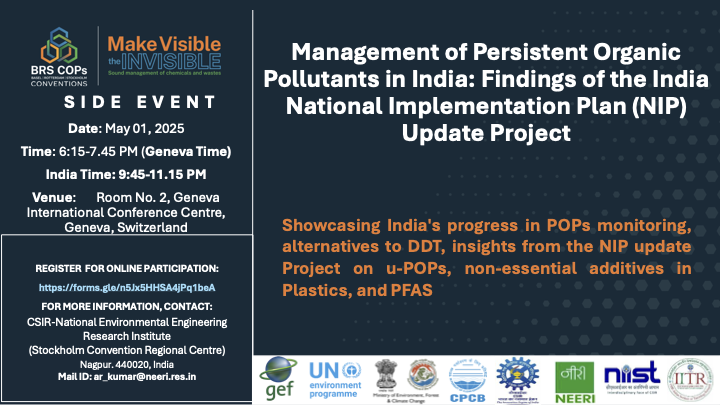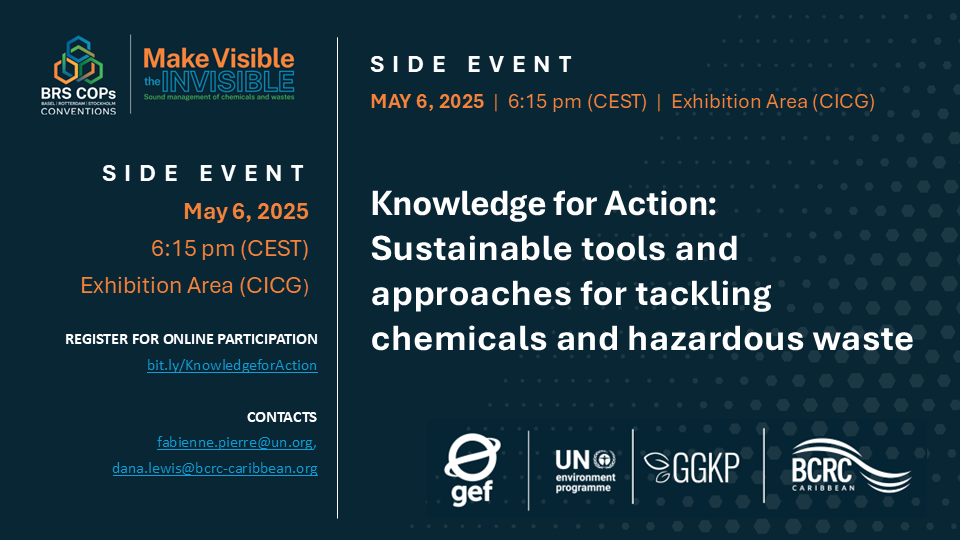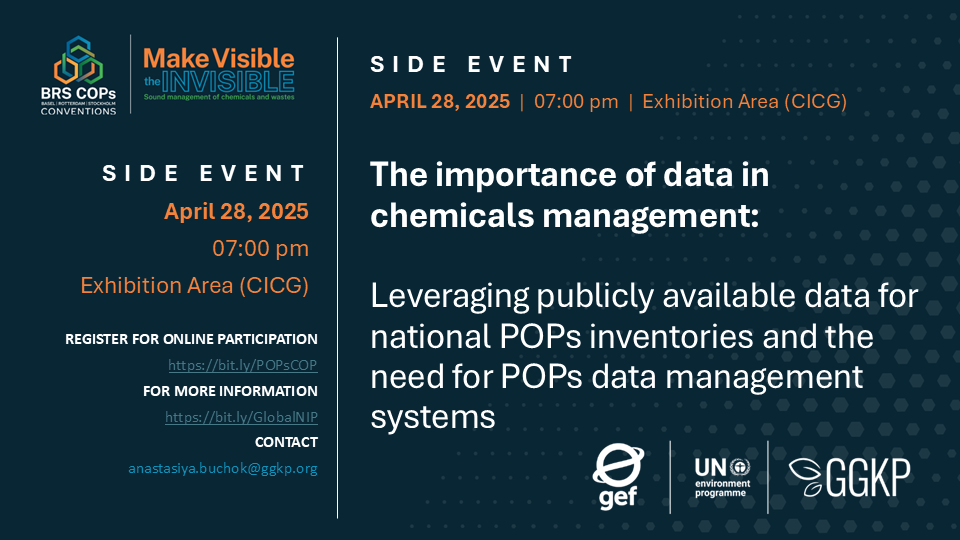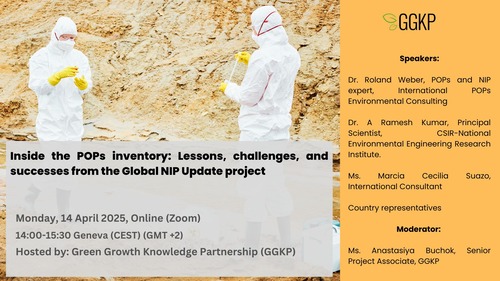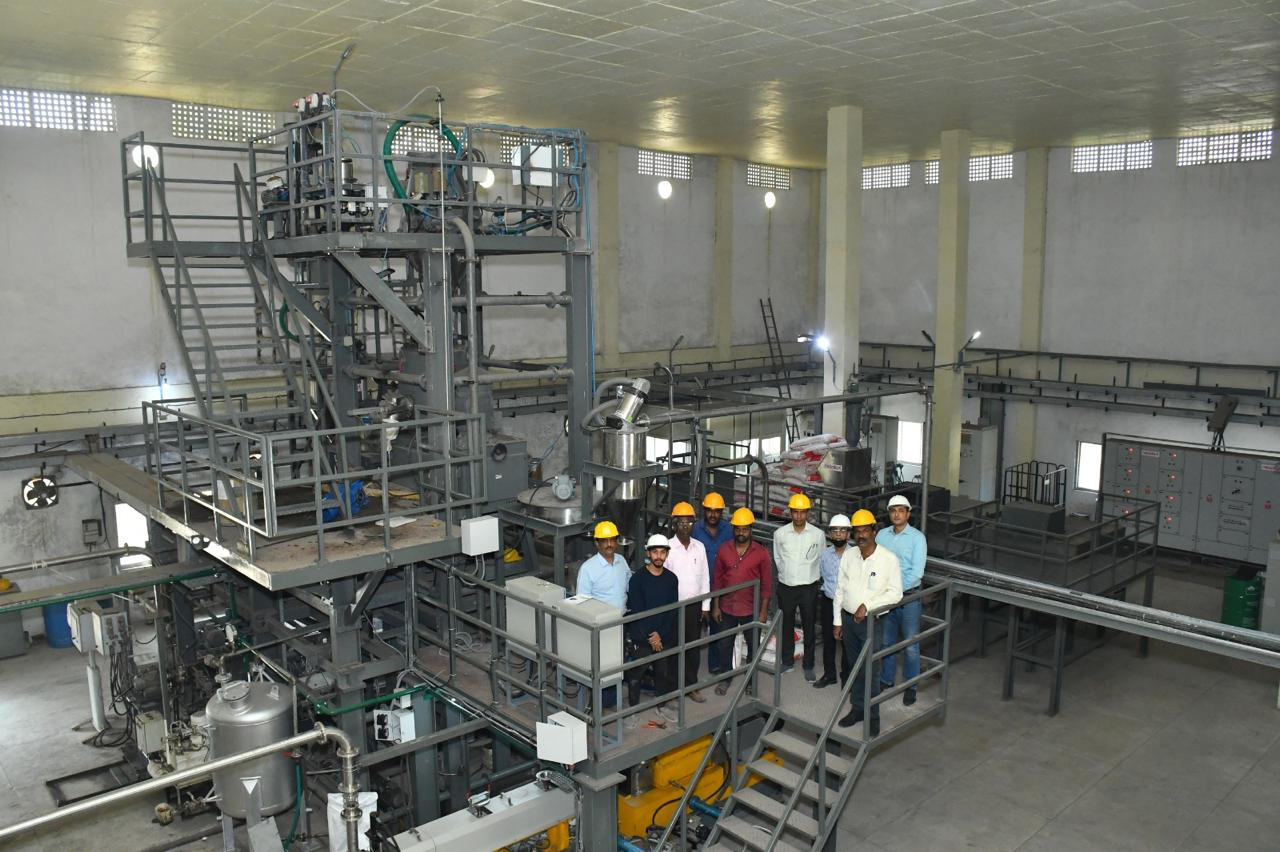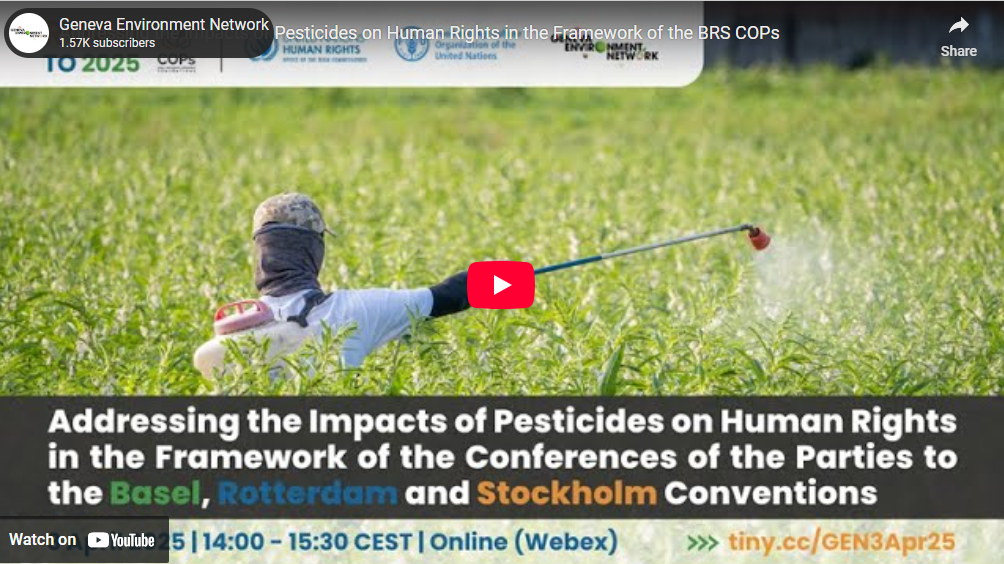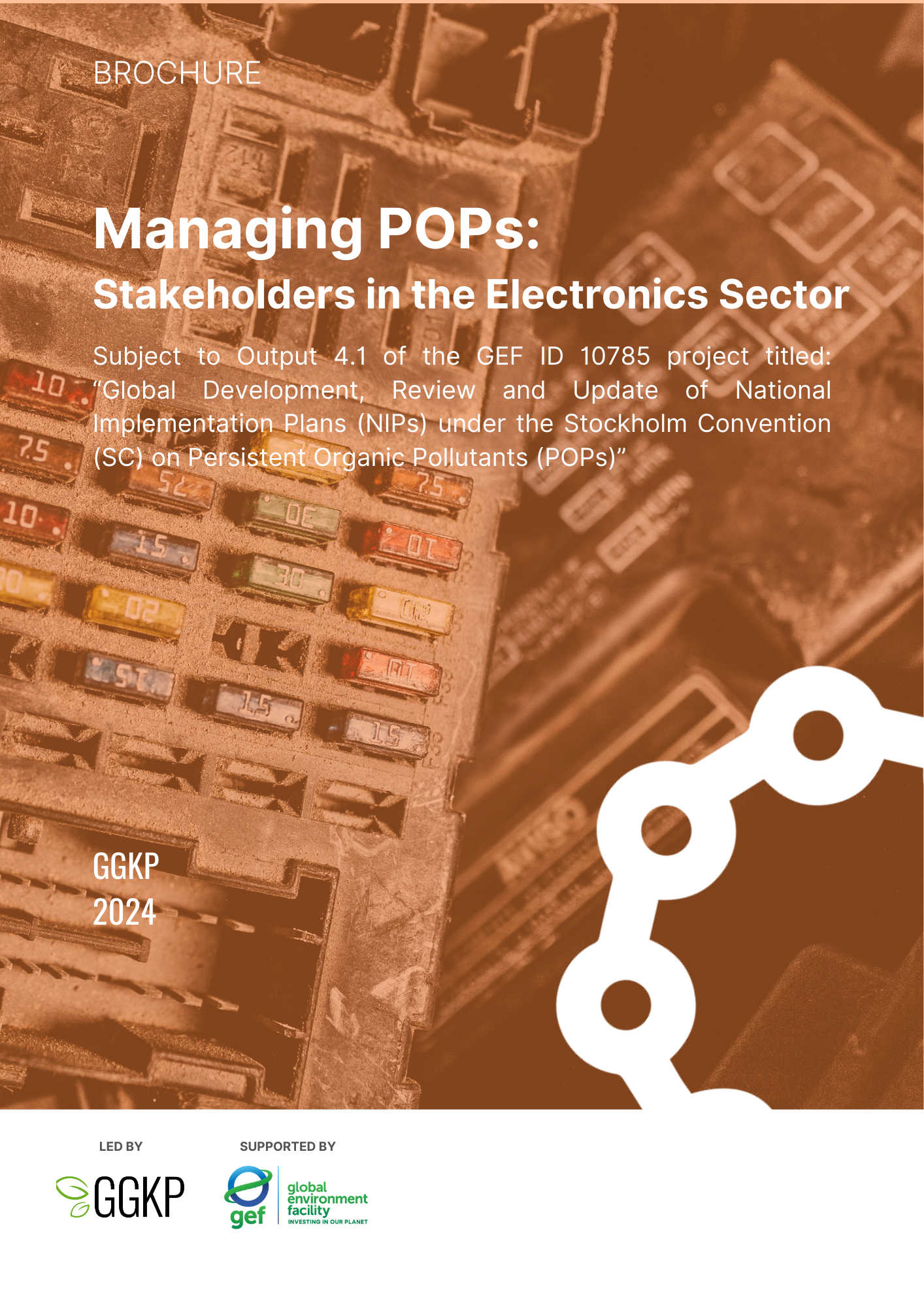Development, review and update of National Implementation Plans (NIPs) on Persistent Organic Pollutants (POPs)
Group
Group content visibilityJoin method
373 members
Access permissions
Group visibilityPublic - All visitors of the platform can see this group
Public - visible to all visitors to the platform.
Open to join - users can join this group without approval.

This the virtual space for the Global Development, Review and Update of National Implementation Plans (NIPs) under the Stockholm Convention (SC) on Persistent Organic Pollutants (POPs) Project.
Group members are welcome to share their experiences and expertise on the NIPs update process.
Group members are welcome to share their experiences and expertise on the NIPs update process.
Upcoming Events
Online
Development, review and update of National Implementation Plans (NIPs) on Persistent Organic Pollutants (POPs)
5 months ago
5 months ago
5 months ago
6 months ago
6 months ago
7 months ago



